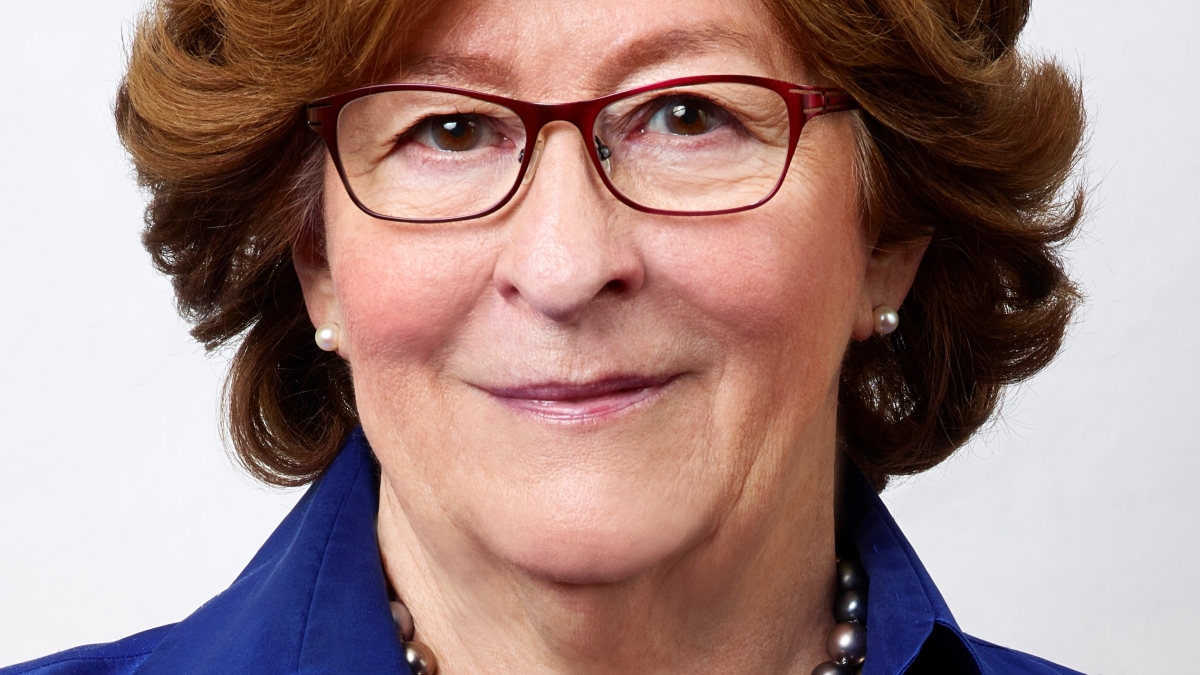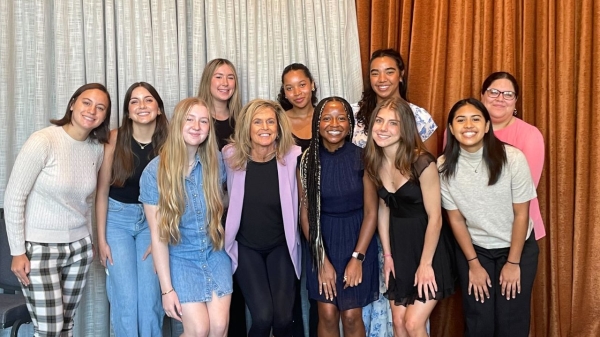Former UN high commissioner for human rights to be honored with 2022 O'Connor Justice Prize

The Honorable Louise Arbour, recipient of the 2022 O'Connor Justice Prize
The Honorable Louise Arbour, former justice of the Supreme Court of Canada and high commissioner for human rights for the United Nations, has been named the eighth recipient of the O'Connor Justice Prize.
The award, administered by the Sandra Day O’Connor College of Law at Arizona State University, was established in 2014 to honor the legacy of the school’s namesake, retired U.S. Supreme Court Justice Sandra Day O’Connor. It recognizes those who have made extraordinary efforts to advance rule of law, justice and human rights.
“I'm extremely honored to receive this accolade. I think there's nothing like recognition by your peers,” Arbour said. “I think it's very significant, and the association with one of the greatest jurists in the United States, a woman for whom I have a lot of admiration. I feel very humbled and very honored.”
Arbour was appointed by the security council of the U.N. as chief prosecutor for the international criminal tribunals for the former Yugoslavia and for Rwanda in 1996. In this role, she secured the first conviction for genocide — in response to the 1994 Rwandan Civil War — since the 1948 Genocide Convention and the first indictment for war crimes by a sitting European head of state, Serbian President Slobodan Milosevic.
“Since the Nuremberg trials, there had never been any other effort or opportunity to set up an international criminal mechanism of accountability for heads of states or military-political leaders involved in severe violations of international humanitarian law, the laws of war, genocide, crimes against humanity,” Arbour said.
In 1999, she resigned to take up the prestigious appointment to the Supreme Court of Canada, serving until 2004 when she was asked to return to the U.N. as the high commissioner for human rights.
During her service for the U.N., Arbour has worked to expand the understanding and application of international criminal law, human rights and accountability.
Most notably under her leadership, the Commission on Human Rights transformed into the Human Rights Council, creating a mechanism for accountability called Universal Periodic Review, which places each member state of the U.N. under scrutiny for its actions.
Arbour will be presented with the O’Connor Justice Prize in a ceremony in early 2023.
Previous recipients of the O’Connor Justice Prize include:
- Inaugural recipient Navanethem Pillay of South Africa, the former U.N. High Commissioner for Human Rights, honored for her fight against apartheid, as well as her championing of international human rights.
- Ana Palacio, honored as the first woman to serve as the foreign affairs minister of Spain, member of the Council of State of Spain and former senior vice president and general counsel of the World Bank Group.
- Jimmy Carter, the 39th president of the United States, honored for his humanitarian work since leaving office. He was awarded the Nobel Peace Prize in 2002 for his efforts to find peaceful solutions to conflicts, to advance democracy and to promote economic and social development.
- Anson Chan, the former chief secretary of Hong Kong, known as “Hong Kong’s conscience,” honored for her decades of devotion to social justice and democracy. She helped oversee Hong Kong’s transition from British control in 1997.
- Frederik Willem de Klerk, the former South African president, honored for leading the effort to dismantle that country’s apartheid system and co-recipient of the Nobel Peace Prize with Nelson Mandela in 1993.
- Nadia Murad, the acclaimed Yazidi human rights activist, honored for founding a global initiative to advocate for survivors of violence and genocide, becoming the first Iraqi and Yazidi to be awarded the Nobel Peace Prize, which she received in 2018.
- Judge Elizabeth Odio Benito, president of the Inter-American Court of Human Rights, honored for her work in creating the modern framework for international justice and decades of teaching, research and leadership around international human rights and, more specifically, women’s rights.
More Law, journalism and politics

Cronkite School launches Women Leaders in Sports Media live-learn program
Women in a new sports media program at Arizona State University got a solid game plan from a sports veteran at an Aug. 20 welcome…

ASU center to host the Pursuits of Education and Excellence Symposium
The Center for the Study of Race and Democracy (CSRD) at Arizona State University is introducing the Pursuits of Education and…
ASU journalism students dominate NATAS Student Production Award nominations
Students at Arizona State University’s Walter Cronkite School of Journalism and Mass Communication dominated the nominations…